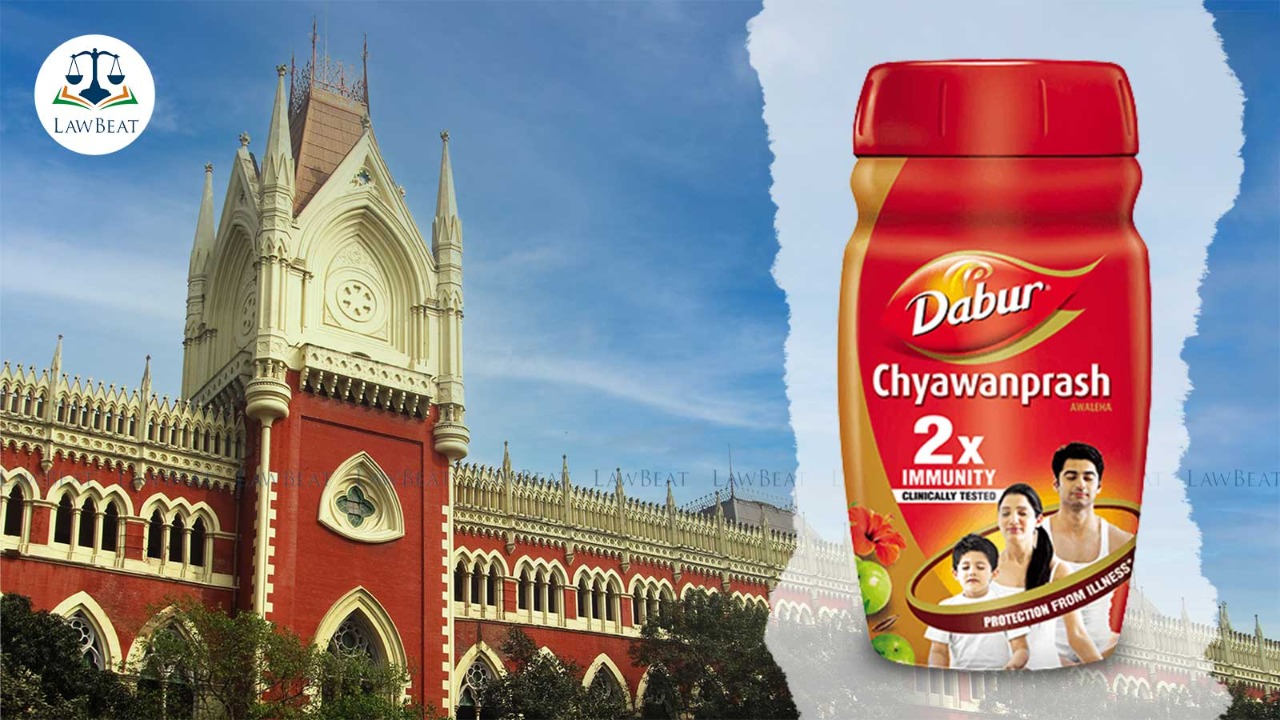"Balance between right of commercial speech & interest of public and competitors" necessary: Calcutta High Court injuncts Baidyanath Chawanprash from disparaging Dabur Chawanprash

Justice Shekhar B. Saraf of Calcutta High Court has injuncted Baidyanath Chawanprash from slandering and disparaging Dabur's Chawanprash in its advertisements.
The Court observed,
"A misleading advertising, as the term implies, is one that deceives, manipulates, or is likely to deceive or manipulate the consumer. These commercials have the potential to influence the consumer’s purchase preference in the market and it also harms its rivals, hence, they must be used with caution."
Factual Matrix
The petitioner, Dabur India Limited sells a product named Chawanprash across India. On November 12, 2021, the petitioner came to know about a series of advertisements made by the respondent, Shree Biadyanath Ayurveda Bhawan, comparing Chawanprash and Baidyanath's Chawanprash.
In the advertisments floated across print media, OTT and television, the respondent is stating that its product has 52 ingredients whereas the petitioner's product has 42 ingredients only. The advertisement also mentions that Baidyanath's product is made from ‘100% pure ghee’ whereas its rivals have a ‘mixture of vegetable oil and ghee’.
For seeking remedy against the impugned advertisements, Dabur moved this application, praying for an order of injunction restraining the Baidyanath from issuing, publishing or uploading the impugned advertisements disparaging the goodwill and reputation of the petitioner and its product ‘Chyawanprash’ being sold under the trademark “Dabur”.
The petitioner also prayed for an order of injunction directing the respondent to remove the impugned advertisements from all electronic medium, TV channels and other print media.
Order
The Court in its order decided to injunct all but one of the advertisements of Baidyanath. The Court also mentioned certain criterias following which the respondent can use the injuncted advertisements.
The Court referred to Hindustan Unilever Ltd. –v- Reckitt Benckiser (India) Ltd wherein two rival products were compared in a similar manner, and the Court had held that such comparison regarding efficiency was not in the nature of 'puff'.
The Court noted that,
"The above case squarely applies to the present dispute because the comparison made by the defendant/respondent is specifically pointing towards deficiency of the other rival products including the petitioner’s product. Moreover, the claim made by the defendant/respondent with regard to number of ingredients of the rival product is false and misleading."
The Court further noted that Baidyanath did not exercise its right to free speech in an honest manner.
"When the defendant highlights that other Chyawanprash contain only 42 ingredients, which is an untrue statement, it cannot claim right to free speech as the same is not allowed to communicate untruthful facts about the other rival products," the Court observed.
The Court further noted that the advertisement was not playing around the grey area which is permissible as per the law, as per Dabur India Ltd. –v- M/s Colortek Meghalaya Pvt. Ltd. & Ors.
"In the present case, direct comparison of number of ingredients between the two products is not in the realm of grey area as it points towards the very composition and data of the generic product available in the market. Furthermore, the comparison with a number of ingredients, that is, 42 ingredients, is malicious and slanderous as the product cannot be complete with 42 ingredients and the product of Chyawanprash in the market are all having at least 47 ingredients as per the Drugs and Cosmetics Act, 1940. Ergo, a comparison with a fictitious number that is lesser than the minimum requirement, insinuates that those products are not in compliance with the Drugs and Cosmetics Act, 1940. Such a comparison is slanderous and mischievous, and accordingly, amounts to disparagement," the Court observed.
Referring to a video advertisement, the Court further observed that,
"There should be a balance between the right of commercial speech and the interest of public and competitors. In the present case, the video advertisement is, to a large extent, misleading. As agreed by both the parties that comparative advertisement within the gambit of puffery under the law is allowed."
Sr. Adv. Sudipta Sarkar, appeared for Dabur whilst Adv. Manish Biala appeared for the respondent.
Cause Title: Dabur India Limited vs Shree Baidyanath Ayurved Bhawan Pvt. Ltd.
